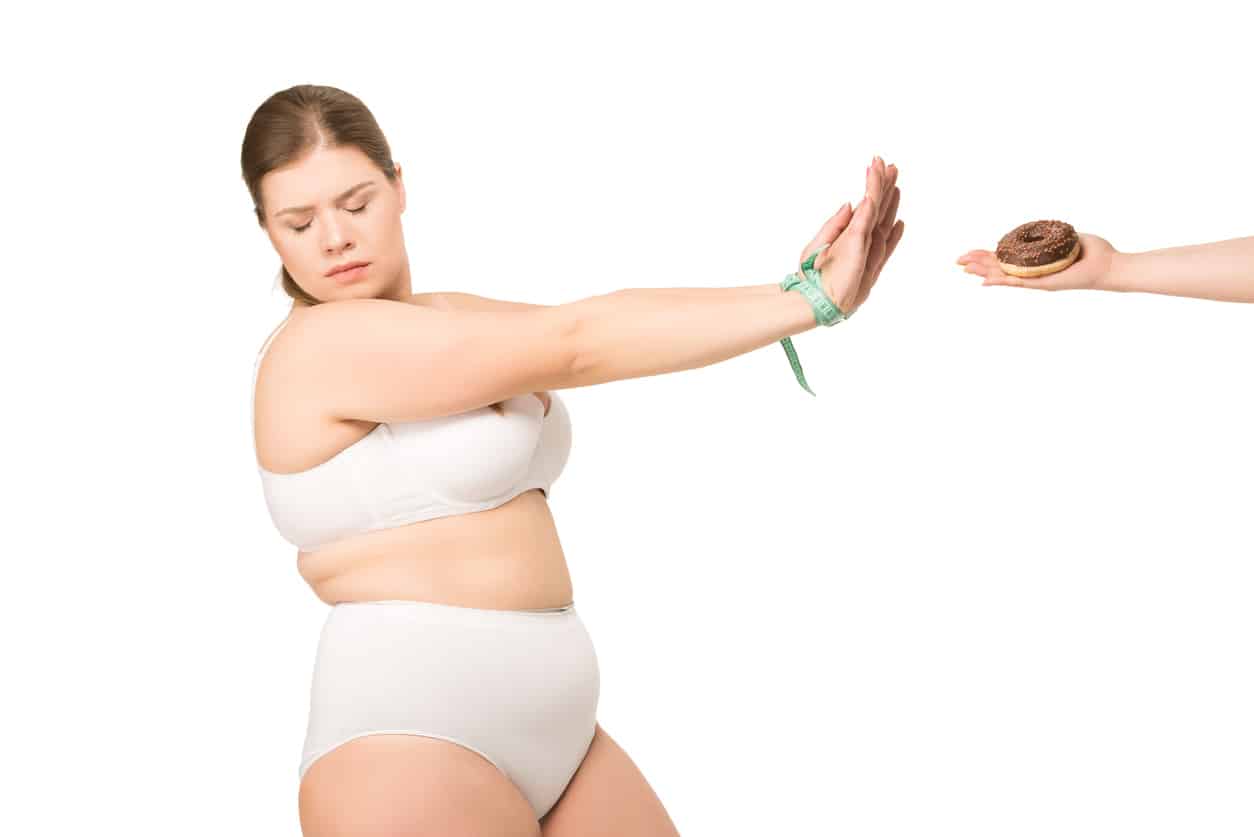Postpartum Weight Loss: 7 Daily Habits To Help You Shed That Baby Fat
You’re basking in the bliss of new motherhood, but those baby pounds just won’t drop. What can you do? Adapt these 7 Habits to aid postpartum weight loss.
The average woman should gain around 25 to 35 pounds during pregnancy. The amount you gain depends on your original weight pre-pregnancy.
After giving birth, you do lose some weight, however, your body won’t look the way it did before getting pregnant.
Are you ready to lose those baby pounds? Now is the time to do something about it and adopt a healthier, happier lifestyle.
Need some motivation? Keep reading to learn about 7 habits that can aid postpartum weight loss.
Where Does All the Baby Weight Go?
First thing, don’t be discouraged. Your body just did an amazing thing–you created a life and brought it into this world. For that, you should applaud your body.
Wondering where all that baby weight goes? Here’s a breakdown of the weight you gain during pregnancy–assuming you gain 35 pounds and you’re at a healthy weight pre-pregnancy:

- 8 pounds: Baby
- 2-3 pounds: Amniotic Fluid
- 4 pounds: Blood and other body fluids
- 5-9 pounds: Fat, protein, and nutrients
- 2-3 pounds: Breasts
- 2-5 pounds: Uterus
- 2-3 pounds: Placenta
As you can see, the weight you gain during pregnancy is needed to nourish your baby in utero and prepare your body for birth and breastfeeding.
How Much Weight Will I Lose Postpartum?
You’ll probably lose 10 to 12 pounds after giving birth. That’s the weight of your baby plus the placenta and other fluids.
A few days postpartum, you can expect to lose an additional 5 pounds of water weight.
If you’re breastfeeding, it will help your uterus contract back to its original size faster. You can expect your uterus to shrink back by about 6 weeks.
However, you may still look pregnant after a couple of months postpartum. Your abdominal muscles have stretched out, so you need exercise and time to get back into shape.

How Long After I Have the Baby Can I Begin a Weight Loss Plan?
Don’t expect to get back into shape a week or two after having your baby. In fact, it’s best to wait until your 6-week postpartum appointment so that your doctor can clear you for working out. You want to allow your body to rest for the first few weeks so that you don’t cause further injury or strain.
Make Realistic Goals
Remember that it took 9 months for you to gain the pregnancy weight, so you should expect around the same time to shed it. And if you gained more than 35 pounds, you might need longer to lose the weight.
You should aim to lose about a pound every week or two. If you lose the weight gradually, you’re more likely to keep it off and maintain your weight.
Losing Weight While Breastfeeding
Breastfeeding can help you lose the weight quicker. That’s because you can burn between 300-500 calories a day from breastfeeding.
However, you should wait at least six weeks before dieting if you’re breastfeeding. You want to first establish a regular milk supply, and cutting calories can affect your supply early on.
Habits to Aid Postpartum Weight Loss
Ready to start on your postpartum weight loss plan? Here are 7 daily habits to adopt.
1. Create a Workout Plan
The American College of Obstetricians and Gynecologists recommend a minimum of 150 minutes of moderate exercise each week.
This may be obvious, but it’s important to create a workout plan and to follow through with it. Before you start your new fitness regimen, you should decide how often you want to exercise and what times and days you can do it. With a little one in tow, it’s not going to be as easy to drop by the gym whenever you want.
Set a schedule based on your baby’s schedule. If your baby sleeps well through the early morning, you can wake up early and workout. If you prefer evening workouts, you can put your baby to bed and then go to the gym during that time.
Do what works for you. Some women find it easier to work out at home instead of the gym. If you have a gym room, you can exercise there or if your apartment has a community gym.
You can even workout in the comfort of your living room. The best thing about exercising is that you can customize your workout based on your needs. If you can’t find the time for longer workouts, you can try mini-workouts throughout the day.
Stick with It
Once you set a workout regimen for the week, you want to stick with it. You can team up with another workout buddy so you can motivate each other and work out together.
You can also join an online community for motivation and for workout tips and advice postpartum.
Another tip is to use fitness apps or a smartwatch to track your workouts and progress. There are many apps available that track your weight loss and send out reminders and motivations to help you reach your goal.
Set Mini Goals
It might help to set mini goals to help you get to your larger, overall goal. If you want to lose 20 pounds overall, you can set 4 mini goals to lose 5 pounds. That way, you can reach your mini-goals faster and will be motivated to keep going.
2. Drink More Water
Drinking water can help you lose the weight faster. Studies show that your resting energy expenditure goes up by 24-30% when you drink water.
Another study showed that women who increased their consumption of water to over 34 ounces a day lost 4.4 more pounds within a year.
Drinking water can also help curb your appetite. Research shows that drinking water before breakfast can decrease the number of calories you eat for that meal by 13%.
Drinking water can help fill you up and you can end up consuming fewer calories. And if you’re breastfeeding, you need to drink more water to replace the fluids you lose while nursing throughout the day.
How can you tell if you need to drink more water? A good indicator is the color of your urine. If your urine is dark-colored, you should be drinking more water.

3. Prepare Meals and Snacks Ahead of Time
Depending on your schedule, you can make this a daily habit or a weekly habit. Meal prepping your meals and snacks ahead of time can save you time, money, and effort. It can also help prevent you from binging on junk food when you’re hungry or craving certain foods.
If you do it weekly, you can pick a day of the week–Sunday is usually best–to make all your meals and snacks for the week. You can cook one or two large dinners and store it in the fridge or freezer for the week. You should separate the meals according to the days of the week.
You can also prep your snacks. You can make yogurt parfaits with Greek yogurt and fresh berries. You can also make overnight oatmeal for breakfast. For snacks, cut up veggies and fruits and place in small containers or plastic bags.
It can be difficult to find the time to make yourself a meal with a baby. This way, you’ll always have something to eat on hand throughout the week. All you need is to invest in some plastic containers or some type of container to separate your meals in.
4. Walk with Your Baby
Another daily habit to adopt–take daily walks. If you take a brisk walk, you can count it as a part of your daily exercise.
Depending on your neighborhood, you can opt to walk to nearby stores instead of driving. If you need milk, you can take a walk to the nearby grocery store. This is a great way to burn calories, and it’s also an environmentally-friendly choice.
You can also show your baby the sights and sounds of the neighborhood. Point out the trees, the birds, and the color of the sky. You can push your baby in the stroller or put them in a baby carrier so you’re on the go.
You can also add walks to your daily schedule. Park far from the store so that you take a mini walk through the parking lot.
If you have a two-story home, go upstairs to change baby’s diaper. This way, you’re always moving and active.
5. Set Limits
There are some foods you should limit if you want to shed the pounds. Candy and soda, for example, you can do without.
However, instead of cutting out these foods, you should replace them with healthier options. For example, instead of drinking soda at dinner time, you can drink fruit-infused water. This way, you won’t feel like you’re depriving yourself of your favorite sweets.
Other healthy substitutions include replacing candy with sweet fruits such as cherries or bananas. You can replace chips with celery or cut up cucumbers.
Another thing you can do is get rid of all the junk and processed foods in your house. Do an inventory of your fridge and pantry. Get rid of unhealthy foods and replace with lots of fruits, veggies, lean meats, whole grains, and low-fat dairy items.
6. Don’t Skip Meals
Another word of advice: don’t skip meals. You should especially not skip breakfast. The old adage is true, breakfast really is the most important meal of the day.
When you wake up in the morning, you have low blood sugar from not eating the night before. You need breakfast to raise your blood sugar and give you that energy boost in the morning
If you skip breakfast, you’re more likely to feel tired throughout the day. You’re also more likely to overeat later in the day to replenish the calories you lost. This makes it harder to control food cravings to avoid overeating.
Even if you don’t feel hungry in the morning, you should at least eat a small, healthy breakfast like yogurt or boiled eggs.
If you eat your regular meals throughout the day, you can maintain your energy levels and have better control over your cravings.
7. Get Some Rest
One-third of us are not sleeping enough. Sleep has become a luxury these days. Many times you hear new parents boasting about how much sleep they didn’t get.
However, getting enough rest is an important form of self-care. It’s true that not getting enough sleep can affect your weight.
In fact, sleeping enough hours during the night is just as important for losing weight as eating healthy and working out. When you’re sleep-deprived, it affects the decision-making part of your brain–the frontal lobe. You’re less likely to make healthy decisions about what you eat.
Research shows that sleep-deprived people were more likely to snack late at night. They were also more likely to pick high-carb snacks.
If you’re tired, you have less strength to say no to food cravings. You might go for that chocolate bar or ice cream cone when you know you shouldn’t.
What’s more, lack of sleep increases your cortisol levels. Cortisol is a stress hormone that makes your body hold onto energy. This means that your body is more likely to hold onto fat which means a slower metabolism.
Studies reveal that people who slept less throughout a two-week period lost 55% less weight even with the same caloric intake. They were also more hungry and less energetic throughout the day.
How much sleep do you need? Experts say you need between 7 to 9 hours every night.
This can be difficult postpartum with the baby up constantly and your neverending list of things to do. You can at least rest when the baby is napping and sleep when the baby sleeps at night.
Final Advice for Shedding That Baby Fat
Our final advice for postpartum weight loss is to stay focused and not give up. As long as you’re making steady progress, keep going to reach your goal.
Our 21 Day Body Transformation Challenge combines diet and exercise to transform your look. If you want to turn heads for the right reasons, find out more here.













Recent Comments